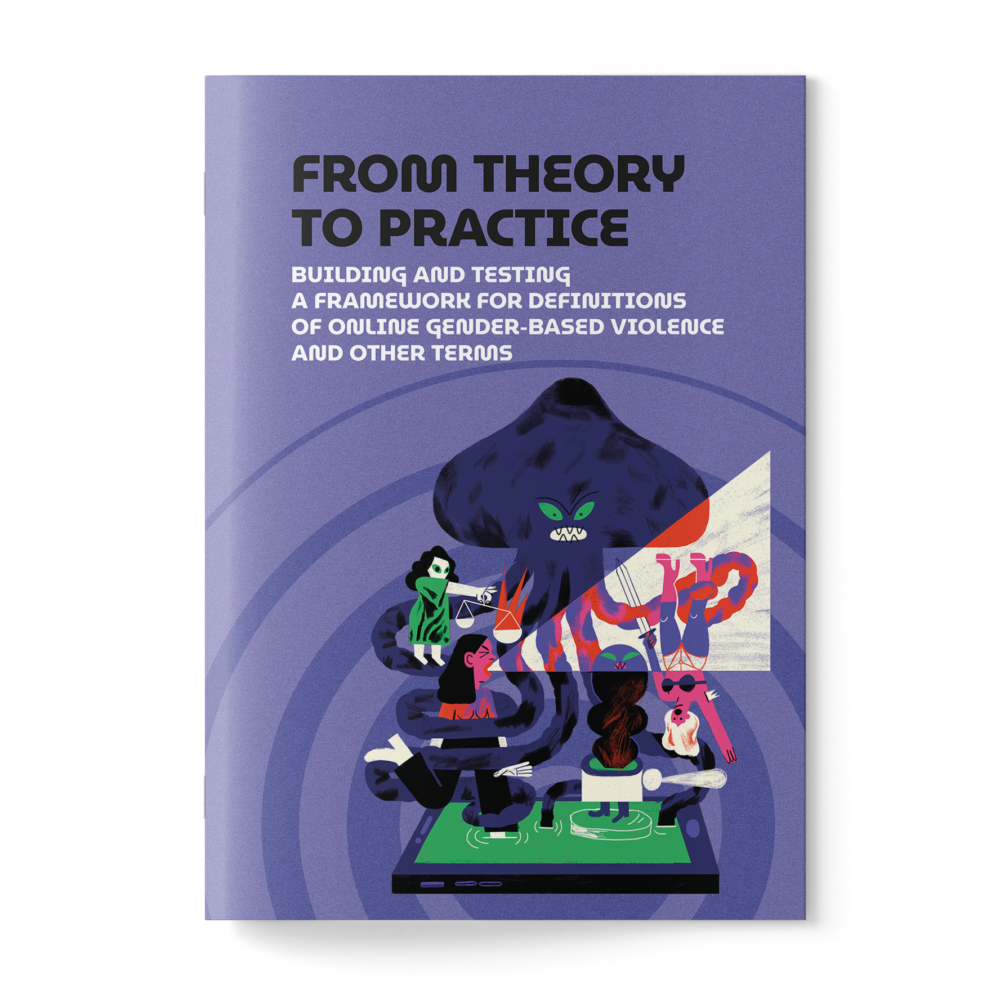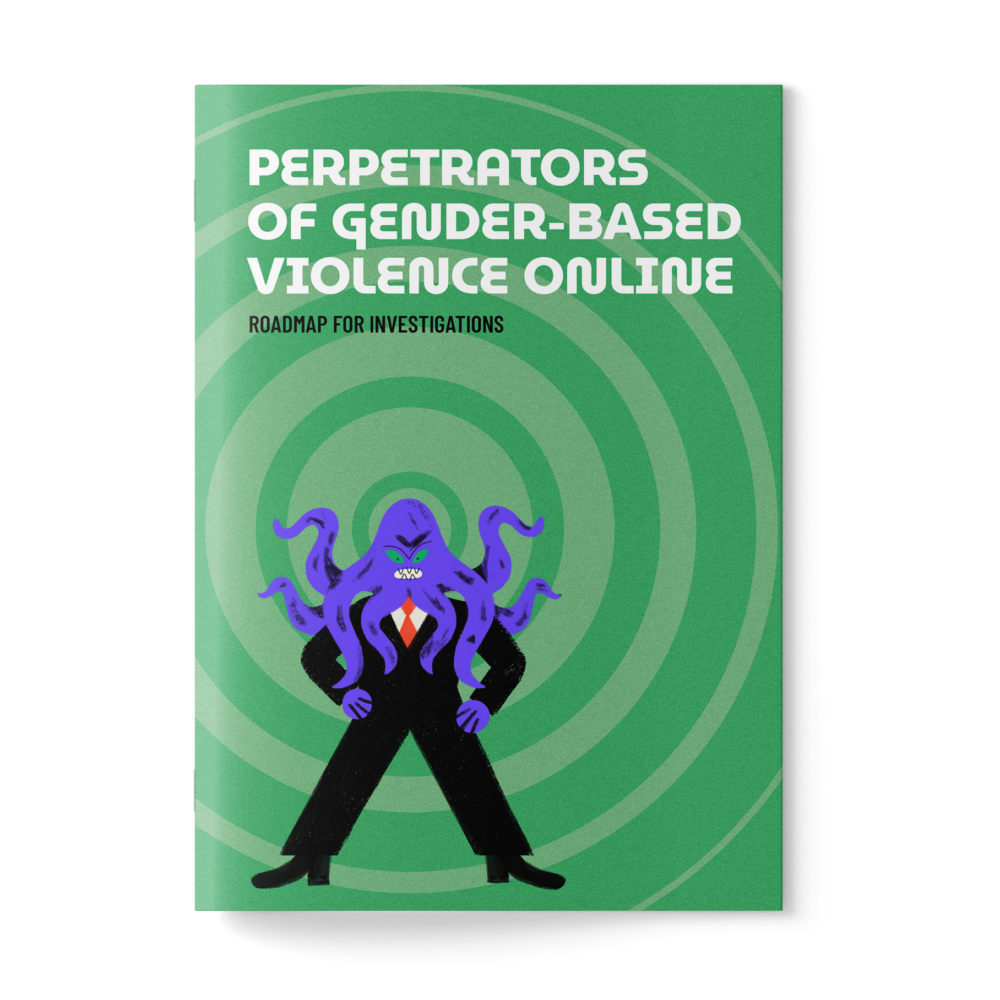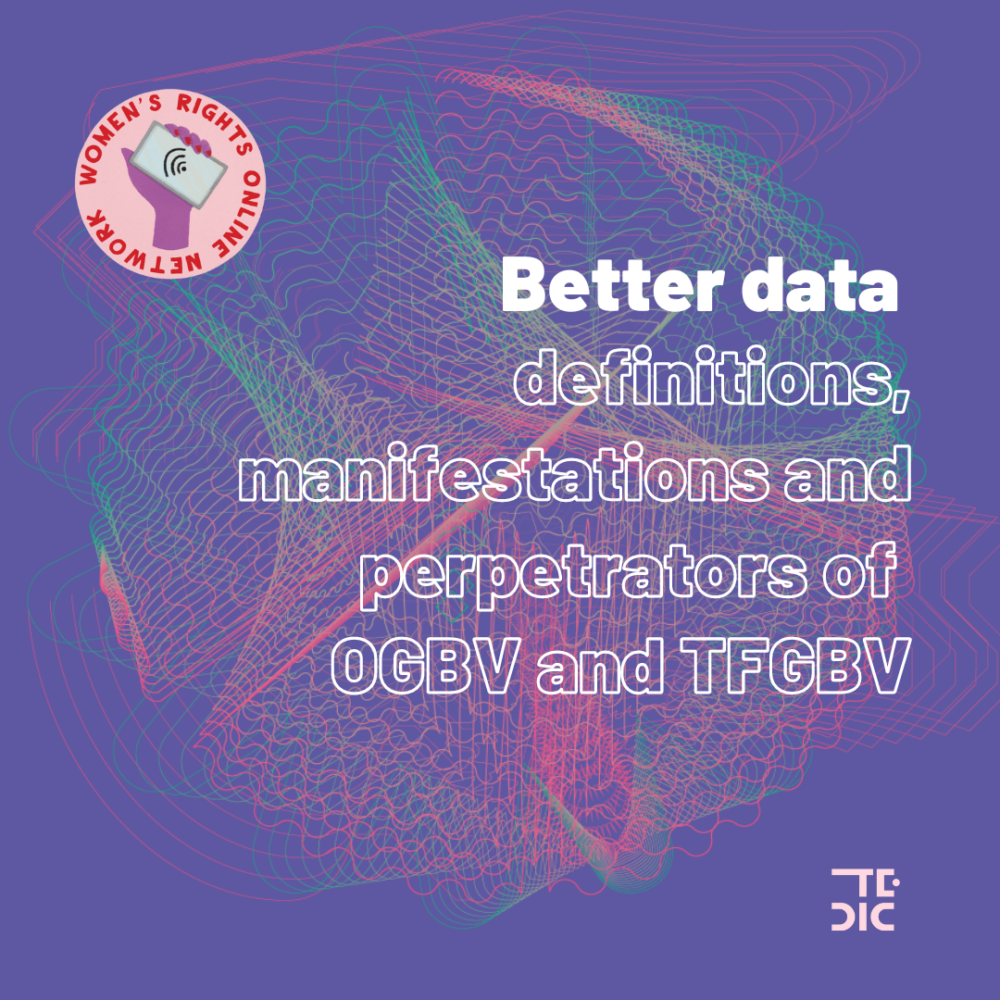
Online Gender-Based Violence (OGBV) is continuously evolving and expanding, making it urgent to find effective measures and diverse approaches to address it. In response to this need, from August 2023 to May 2024, we carried out the “Better Data” project, led by the World Wide Web Foundation, the convening organization of Women’s Rights Online (WRO), a global network of leading organisations in gender justice and digital rights.
The “Better Data” project was divided into two main areas: one focused on researching the information gaps about the perpetrators of OGBV, and the other on analysing the wide variety of definitions and manifestations of OGBV. The goal of this project was to develop strategies to analyse common patterns in these definitions and manifestations, with the intention of standardising data collection on the topic worldwide. We believe that developing these strategies and standardising data collection are fundamental actions for better understanding the problem and creating more effective policies that allow for coordinated action among multiple stakeholders.
Organisations involved in this process included TEDIC (Paraguay), Pollicy (Uganda), Sulá Batsú (Costa Rica), Women of Uganda Network (WOUGNET), Media Foundation for West Africa (Ghana), Fundación Karisma (Colombia), HOPE for Mozambique, and Pen to Paper, with support and guidance from Social Finance (United Kingdom).
Identifying gaps in OGBV research
Currently, most research on OGBV focuses on the experiences of survivors, leaving a significant gap in identifying the perpetrators, their motivations, and how to mitigate their impact. To address this gap, another working group of the “Better Data” initiative focused on investigating OGBV perpetrators. This research team developed a methodology to identify and collect information from various actors worldwide. The first phase of the project involved reviewing over 50 relevant documents to determine the current state of available information and the gaps requiring urgent attention. The information compiled and reviewed by the working group revealed a lack of comprehensive data on the experiences, motivations, different profiles, and behaviours of OGBV perpetrators.
Based on these findings, specific questions were designed and addressed in the next phase of this working group, collaboratively with various civil society actors, academia, the tech sector, and government representatives. In collaboration with Pollicy, three Technology Policy Design Lab (TPDL) workshops were organised. This methodology aims to foster collaboration between governments, companies, and civil society to address complex technological challenges through a human-centred design, seeking to develop innovative policy outcomes. These workshops were held in February and March 2024, online and in different time zones to ensure participation from collaborators worldwide. Additionally, one of these workshops was held in person during the Commission on the Status of Women (CSW) week in New York.
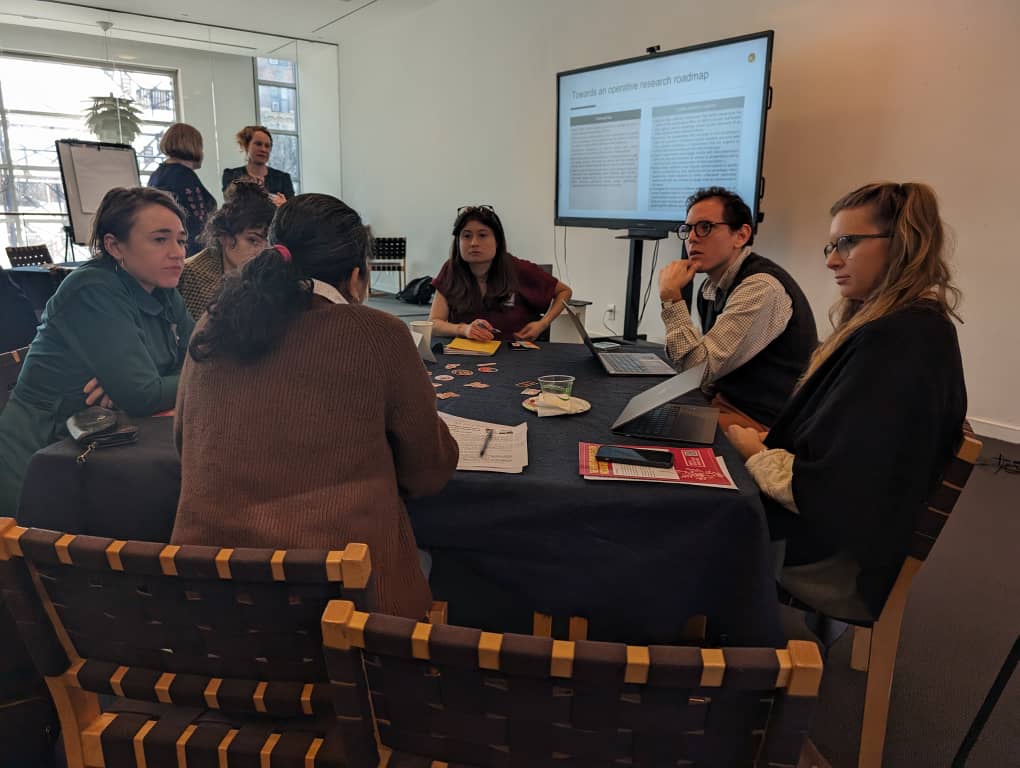
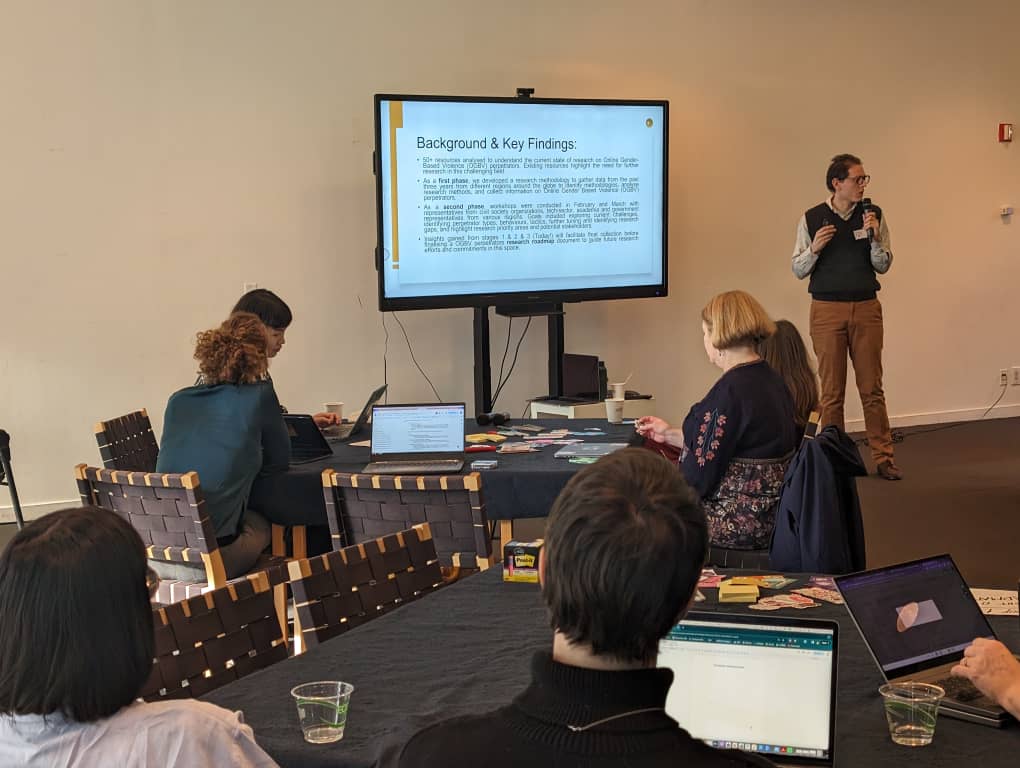
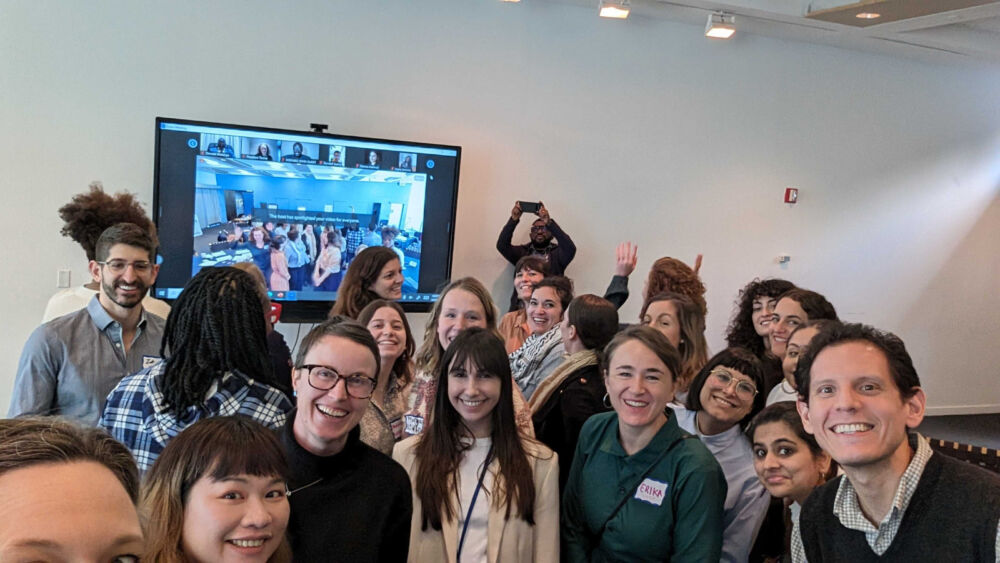
Key research areas
As a result of these discussions, three key areas requiring urgent attention for researchers and potential donors seeking to fund OGBV research were highlighted:
- Minors as OGBV perpetrators: the need for specific educational programs and detailed data.
- Factors and types of OGBV perpetrators: diversity of profiles and motivations, as well as the need for interdisciplinary collaboration.
- Behaviour changes strategies to mitigate OGBV: examples of successful interventions and recommendations for future research.
The outcome of this research process in its first and second phases was the creation of a research roadmap on OGBV perpetrators, identifying gaps, trends, and key findings of current research. Despite limitations in including all regional experiences and perspectives, dialogues were established, and opinions and feedback were gathered from organizations in West Africa, North America, Central America, East Africa, Europe, South America, and Southern Africa. These findings highlight the urgent challenges that need to be addressed to advance more comprehensive research on the interconnected aspects of OGBV, with a particular focus on perpetrators, to develop more effective actions to combat and mitigate OGBV.
Addressing challenges: The need for common frameworks in OGBV
OGBV manifests in various forms and varies according to regional contexts, making it necessary to develop common conceptual frameworks to address it effectively. These frameworks are essential for policymakers, statistical agencies, and other institutions to collect accurate and detailed data on OGBV. Standardising definitions and manifestations allow for a more comprehensive and collective understanding of the problem, facilitating the creation of more effective policies and coordinated actions globally.
One of the working groups of the “Better Data” initiative focused on identifying and analysing unaddressed areas and existing nuances in the definitions and manifestations of OGBV. This phase of the project was developed in two key stages. The first stage involved data collection, during which over 90 documents were reviewed and analysed to identify and systematize current used definitions. The second stage involved organising two roundtable discussions with policymakers and civil society members, co-organised by TEDIC, Fundación Karisma, and Sulá Batsú.
The main objective of these roundtable discussions was to share the various definitions and manifestations mapped in the first phase, debate their complexities, and analyse similarities and differences to develop a common framework to serve as reference. This framework is intended to help governments, academia, civil society organisations, and other stakeholders understand OGBV more comprehensively. The discussions also addressed the growing use of the term Technology-Facilitated Gender-Based Violence (TFGBV) and the changes its usage implies in terms of expanding the understanding of the phenomenon.
These roundtable discussions were held in both English and Spanish in May 2024, with significant participation from people in Latin America, enriching the conversations and providing a Global South perspective on the issues discussed. The need to develop a reference framework arises from the urgency to provide tools for policymakers and statistical agencies to consider the nuances, complexities, and challenges of OGBV/TFGBV. The expectation is to generate data collection instruments that can gather detailed and disaggregated information on OGBV/TFGBV at national, regional, and global levels.
The quest to standardize the definitions and manifestations of OGBV/TFGBV is a complex task and the subject of global debate due to the particularities of each region regarding gender-based violence. As a result of these two stages, we developed a report that synthesizes the main findings, including an inventory of the various terms in use and their associated manifestations, as well as a framework with guiding questions on how to locally construct and define OGBV/TFGBV and its manifestations. It is expected that the results of this work will significantly contribute to addressing OGBV/TFGBV more comprehensively, considering all the fundamental dimensions to define it and subsequently guide effective actions both in information collection and regulation, avoiding overly broad approaches that could conflict with other rights.
Next Steps
There is still much to be done to combat and mitigate OGBV/TFGBV. We hope that the results of this project will contribute to the development of effective initiatives in the fight against OGBV/TFGBV worldwide. Both documents highlight the need for and importance of preserving internal processes for defining OGBV/TFGBV for the effective construction of public policies that consider the particularities of a given territory.
The final documents of both processes will be officially launched and shared with WRO network members, as well as governmental entities, academia, platform representatives, technology companies, and other civil society members. The goal is to foster greater engagement and participation, as well as to draw attention to key aspects to consider when addressing OGBV/TFGBV and developing actions to combat it.
Finally, the contribution of this project will be measured by the tangible results achieved and the positive impact on addressing OGBV. It is expected that this joint and global effort will ensure a safer and fairer online environment for everyone.
